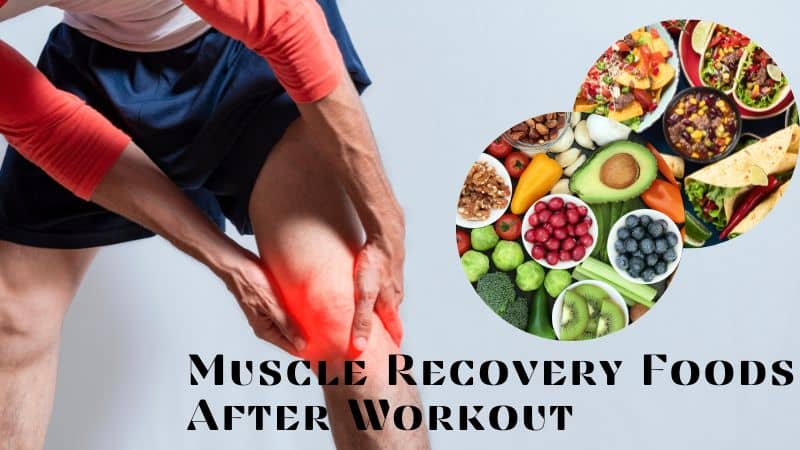If you’re regularly pushing yourself at the gym or engaging in endurance sports, muscle soreness and fatigue are part of the process. That’s why recovery is so important. Did you know that what you eat can significantly influence how quickly your muscles recover? In fact, your post-workout nutrition is just as critical as the exercise itself! Let’s explore the top foods that promote faster muscle recovery so you can get back to doing what you love.
Why Muscle Recovery Matters
Before we dive into the best foods for recovery, it’s essential to understand why recovery is crucial. When you exercise, you create small tears in your muscle fibers. During the recovery phase, your body repairs and strengthens these fibers, making you stronger and more resilient. Failing to provide your muscles with the time and nutrients they need can lead to injury, fatigue, and a plateau in your progress.
Key Nutrients for Muscle Recovery
Certain nutrients are essential for muscle repair, reducing inflammation, and restoring energy. These include:
- Proteins: Vital for muscle repair and growth.
- Carbohydrates: Replenish glycogen stores used during exercise.
- Healthy Fats: Help reduce inflammation and aid recovery.
- Vitamins and Minerals: Support muscle repair and other bodily functions.
- Hydration: Prevents cramps and ensures muscles function properly.
Best Foods for Protein Intake
Protein is key for muscle recovery, as it provides amino acids that help rebuild muscle tissue.
- Lean Meats:
- Chicken: A lean, versatile source of high-quality protein.
- Turkey: A low-fat alternative to red meat with excellent protein content.
- Fish:
- Salmon: Contains omega-3 fatty acids and protein, which help reduce inflammation and promote muscle repair.
- Tuna: A lean protein source with heart-healthy omega-3s.
- Plant-Based Proteins:
- Lentils: High in protein, fiber, and complex carbs.
- Chickpeas: Packed with plant-based protein and energy-boosting nutrients.
Carbohydrates for Recovery
Carbohydrates replenish glycogen stores, essential for fueling your next workout.
- Whole Grains:
- Brown Rice: A complex carb that provides lasting energy for recovery.
- Oats: Packed with fiber and slow-digesting carbs, perfect for sustained recovery.
- Fruits:
- Bananas: Rich in potassium, which prevents muscle cramps and restores energy.
- Berries: Full of antioxidants that combat inflammation from intense exercise.
- Starchy Vegetables:
- Sweet Potatoes: Nutrient-dense with complex carbs, vitamins, and antioxidants.
- Quinoa: A complete protein with carbs to help replenish glycogen and support muscle repair.
Healthy Fats to Reduce Inflammation
Healthy fats are vital for reducing muscle soreness and inflammation after workouts.
- Avocados: Rich in heart-healthy fats, they help reduce inflammation and provide energy for recovery.
- Nuts and Seeds: Almonds, walnuts, chia seeds, and flaxseeds are loaded with omega-3s, which fight inflammation and support muscle repair.
- Olive Oil: Known for its anti-inflammatory properties, extra virgin olive oil can speed up recovery.
Vitamins and Minerals Crucial for Recovery
Vitamins and minerals are essential for muscle function and repair.
- Vitamin C:
- Oranges: Help with collagen production and provide antioxidants.
- Bell Peppers: High in vitamin C, aiding muscle recovery.
- Vitamin D:
- Egg Yolks: Provide both protein and vitamin D, which supports muscle function.
- Mushrooms: A plant-based source of vitamin D.
- Magnesium:
- Spinach: Helps relax muscles and prevents cramps.
- Almonds: Rich in magnesium, which aids muscle relaxation and recovery.
- Potassium:
- Bananas: Help reduce muscle soreness and prevent cramps.
- Leafy Greens: Spinach and kale are high in potassium, supporting muscle function.
Hydration for Recovery
Hydration is often overlooked, but it’s vital for preventing cramps, fatigue, and delayed recovery times. Drinking enough water and replenishing electrolytes like sodium, potassium, and magnesium is key to maintaining proper muscle function.
Antioxidants and Muscle Recovery
Antioxidants combat the oxidative stress caused by intense workouts, reducing inflammation and speeding up recovery.
- Berries: Blueberries and strawberries are rich in antioxidants that help reduce muscle damage post-exercise.
- Dark Chocolate: A tasty post-workout treat rich in antioxidants, it helps reduce inflammation and provides an energy boost.
Timing and Muscle Recovery
Meal timing is crucial for optimal recovery. Consuming a mix of protein and carbohydrates within 30-60 minutes after exercise is ideal. Small, frequent meals throughout the day can help sustain energy and support recovery.
Supplements for Muscle Recovery
If your diet isn’t enough to meet your recovery needs, supplements like whey protein, branched-chain amino acids (BCAAs), and creatine can speed up the process and support muscle growth.
Foods to Avoid for Optimal Recovery
Avoid processed foods, sugary snacks, and alcohol, as they can increase inflammation and slow down muscle recovery.
Combining Foods for Maximum Recovery
For optimal recovery, pair protein-rich foods with healthy carbs and fats. For example, chicken with quinoa and spinach or salmon with sweet potatoes and avocado provide a well-balanced post-workout meal.
Personalized Nutrition for Muscle Recovery
Everyone’s body is different, so it’s important to tailor your post-workout meals to your individual needs. Consulting with a nutritionist can help you find the best foods for your specific goals.
Conclusion
To speed up muscle recovery and enhance performance, focus on incorporating lean proteins, complex carbohydrates, healthy fats, and plenty of vitamins and minerals into your diet. Stay hydrated and eat your meals at the right time to give your muscles the best chance to recover and grow stronger.
FAQs
- What’s the best post-workout food for muscle recovery?
A mix of protein (like chicken or fish) and carbs (such as sweet potatoes or quinoa) is ideal. - How much protein should I consume after a workout?
Aim for 20-30 grams of protein depending on your body weight and the intensity of your exercise. - Can plant-based athletes recover as effectively?
Yes! Lentils, chickpeas, quinoa, and plant-based protein powders are excellent options. - Do electrolytes help with recovery?
Yes, electrolytes like sodium, potassium, and magnesium prevent cramps and muscle fatigue. - Are supplements necessary for recovery?
They aren’t required, but supplements like whey protein or BCAAs can speed up recovery if needed
